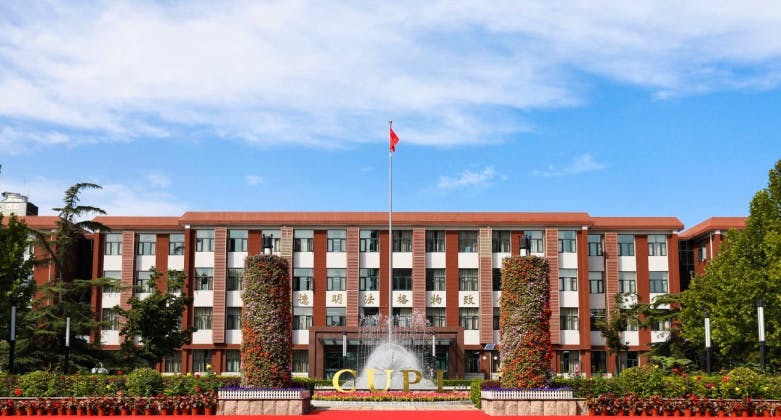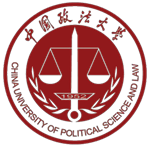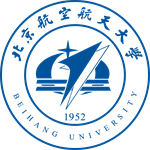China University of Political Science and Law (CUPL) is well known for legal academics and enjoys a distinguished reputation in politics, economics, management, arts, history, philosophy, education, as well as disciplines related to engineering and sciences. It is one of the China’s top universities listed under the Double First Class University Plan, the Project 211 and the Project 985 Strength Discipline Innovation Platform. CUPL is also listed in the Project 2011 and the Plan 111, i.e. the Program of Introducing Talents of Discipline to Universities. CUPL is a prestigious university in China under the direct leadership of the State Ministry of Education (MOE). Now, CUPL is focusing on developing itself into a world-class university with world-class discipline. Located in Beijing, CUPL has two campuses, the Xueyuanlu campus in Haidian District and the Fuxuelu campus in Changping District. CUPL’s predecessor (The Peking College of Political Science and Law―founded in 1952), combined departments of law, political science and sociology of Peking University, Tsinghua University, Yenching University, and Fu Jen Catholic University. The then Chinese leader Mr. Mao Zedong, awarded his own handwriting of the school name. The college was originally located at the Beach Charm in Beijing and moved to Xueyuan Lu in 1954. In 1960, it became the key national college designated by China. During the Cultural Revolution, the school was suspended and was later reopened in 1978. In 1983, merged with the Central Cadres’ College of Science, it was subsequently renamed the China University of Political Science and Law. Then Chinese leader Mr. Deng Xiaoping, awarded his own handwriting of the school name. Subsequently, three divisions emerged: an undergraduate school, a postgraduate school, and a school of advanced training. Later the school of advanced training was renamed Central Leadership Institute of Politics and Law and had been operated independently for a certain period. Then in 2000, the independent school was re-incorporated into CUPL. On May 3, 2017, President Xi Jinping, General Secretary of the Central Committee of the Communist Party of China (CPC) and Chairman of the Central Military Commission of China, visited CUPL and delivered an important speech on comprehensive rule of law, cultivation of legal talents and the growth of young talents. President Xi’s speech serves as a guideline and roadmap for the development of CUPL. CUPL is praised as the “the most prestigious law school for legal talent cultivation in China” Over the past 70 years or so, CUPL has educated and trained more than 300,000 graduates. It is the main force of national legal education and legal personnel training. Since the establishment of CUPL, the university has participated in almost all legislative activities in China and has assumed a leading role in the innovation of national legal education, legal theory and legal thought. CUPL has played a key role in representing the country in international legal academic and legal culture exchanges. At the same time, the multi-disciplinary and interdisciplinary talent training model has provided a large number of high-level specialists in humanities and social science for the society and has become a new force in the training of talents in fields such as politics, economics, social sciences and culture in China. There are 17,540 students in the university, including 9,520 undergraduates, 7,277 graduate students, and 743 students from Hong Kong, Macao, Taiwan of the P.R.C. and foreign countries. There are 986 full-time faculty, including 329 full professors, three researchers, as well as 236 and 658 supervisors for doctoral and master students respectively. Among them, Doctoral and master's degree holders accounted for 95.54% of the faculty. CUPL comprises 18 teaching units, including Law School, Civil, Commercial and Economic Law School, School of International Law, School of Criminal Justice, School of Political Science and Public Administration, School of Business, School of Humanities, School of Foreign Studies, School of Marxism, School of Sociology, Guangming School of Journalism and Communication, China-EU School of Law (CESL), School of Juris Master, International Confucian Academy, School of International Studies / Education Center of Hong Kong, Macau and Taiwan Affairs, School of Continuing Education / School of Online Education, Department of Science and Technology / School of Information Management For Law, and Department of Physical Education. CUPL offers 26 undergraduate programs, including Law, Science of Investigation, Political Science and Administration, Administration Management, International Politics, Public Service Administration, Business Administration, Economics, International Business, Financial Engineering, Philosophy, Chinese Linguistic and Literature, Chinese, Education in Ideology and Politics, Sociology, Social Work, Applied Psychology, English Language and Literature, German Language and Literature, French Language and Literature, Translation and Interpreting, Journalism, Network and New Media, Mathematics and Applied Mathematics, and Information Management and Information System (Rule of Law Information Management), Information and Computer Science (Rule of Law Information Management), of which Law, Political Science and Administration as well as the Sociology are national-level featured programs. CUPL offers 38 doctoral programs, 78 academic master degree programs, 8 professional master degree programs and 4 post-doctoral research programs. Law, Political Science, Marxist Theory and Theoretical Economics are the authorized primary Doctoral specialties; Philosophy, Applied Economics, Sociology, Psychology, Foreign Languages and Literature, Journalism, Chinese History, Business Administration, and Public Administration are the authorized primary Master’s specialties, of which Law is a first-degree national key discipline and politics is a first-degree key discipline in Beijing. Evidence Science has been selected into the List of Advanced Discipline in Beijing’s Universities and Colleges. In the fourth round of China Discipline Assessment, nine first degree disciplines of CUPL were assessed and rated by the Ministry of Education. The discipline of law was rated A+. CUPL is the important research hub of the research of humanities and social sciences, especially of law, and is the only university “legislative contact point” of the Legislative Affairs Committee of the Standing Committee of the National People’s Congress (NPC). CUPL is home to the research institute for Xi Jinping Thought on the Rule of Law, one national high-end think tank incubator, and one national human rights education and training base, i.e., the Institute for Human Rights. The university is also home to two key research bases for humanities and social sciences and one key laboratory established by the Ministry of Education (MOE), i.e. the Procedural Law Research Institute, the Legal History Research Institute, the Institute of Evidence Law and Forensic Science. The School of Law-based Government of CUPL is a Beijing Municipal Key Research Base for Philosophy and Social Sciences, a Juvenile Legal Education Base, a Teachers’ Legal Education Base, as well as a Nationa Training Base for Law Faculty of the MOE. CUPL also has three innovation and talent recruitment bases set up by the MOE, i.e. the Evidence Science Innovation and Talent Base (“ESITB”), the Law and Global Governance Innovation and Talent Base, and Rule of Law Data Innovation and Talent Base. The Institute for Chinese Ancient Legal Document of CUPL is a research institute under direct contact of the Ancient Documents Research Committee of the National Institute of Higher Education of the MOE. Moreover, CUPL boasts the Beijing Municipal Research Center for Xi Jinping Thought on Socialism with Chinese Characteristics in the New Era, the Collaborative Innovation Center for Researches on Socialism with Chinese Characteristics in Beijing Universities, and eight high-level research bases co-established by CUPL and state agencies above the provincial and ministerial level, such as the Supreme People’s Procuratorate (SPP). In addition, the university has nine important research institutes, such as the College of Comparative Law, School of Law and Economics, and the Globalization and Global Issues Institute, as well as thirteen self-funded research institutes. CUPL has a fully-fledged strategy for internationalization to consistently enhance its international engagement. Each year, thousands of teachers and students travel abroad for international exchanges and studies, and hundreds of long-term and short-term foreign experts are invited to give lectures at CUPL. And the pattern of training international talents in the university has taken shape. CUPL collaborates with 283 distinguished universities, institutions and international organizations in 54 countries and regions. It participates in the Eurasian Pacific Union, Law Schools Global League Association of Higher Education Institutions in China and central and eastern European countries, Asian Law Association and other international organizations. It initiates mainland, Hong Kong, Macao and Taiwan legal education alliance. The China-EU School of Law (CESL) is the most comprehensive Sino-EU joint program in the field of legal education. CUPL and Washington University, St. Louis jointly established the Sino-Foreign Cooperative Education Program of Double Master Degree in International Law. CUPL has co-established three Confucius Institutes (CIs) in the UK, Romania, and Barbados. CUPL Motto: Keep integrity and law in mind and studying for the people, developing moral education, mastering the law, looking for truth and serving for the public. CUPL will continue to follow the national education policy and the rules of higher education, carry forward the tradition while keeping pace with changes. CUPL will also continue to develop its international reputation - striving for excellence in innovation, multiple disciplines, openness, and international reach.
Show less



.png)







